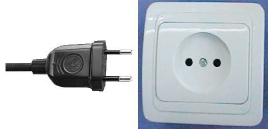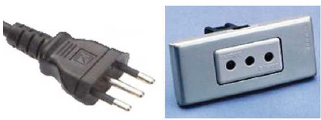DOE-INFN Summer Students Exchange Program 2025 Edition at INFN Padova
The US Department of Energy (DOE) and Istituto Nazionale di Fisica Nucleare of Italy (INFN) announce the 2025 edition of the Summer Exchange Program dedicated to promote the exchange of students in science between the two countries.
INFN is one of the leading organization worldwide promoting basic scientific research and has tight connections with DOE activities in many areas of interest: Particle Physics, Astroparticle Physics, Nuclear Physics, Theoretical Physics and Detector Physics.
DOE-INFN Summer Exchange Program
The DOE-INFN Summer Exchange Program is financed by the US Department of Energy (DoE) and the National Institute for Nuclear Physics – Italy (INFN).
It is dedicated to the exchange of US and Italian Students.
For further details and application visit the DOE-INFN Summer Exchange Program homepage. Call for applications will be published soon.
We call for applications of US students willing to join a INFN research team in ltaly for a two-month period between June 1st and October 31st, 2025.
Available positions at Padova
LHCb
Muon Collider
ICARUS – SBN
LUNA
LHCb
Title: Identification of heavy-flavour jets at LHCb using Graph Neural Networks.
Description: The LHCb experiment is a spectrometer that covers the forward region of proton-proton collisions, in the pseudorapidity range from 2 to 5. Thanks to its excellent vertex reconstruction system, it has already demonstrated the capability to identify heavy-flavor jets. Moreover, c-jet identification (c-tagging) is a crucial ingredient for the search for H → cc at LHCb. Despite the good performance of current algorithms, the jet identification performance for c-jets remains suboptimal. New Machine Learning algorithms, such as Graph Neural Networks (GNNs), could improve this performance by using jet substructure information and potentially provide new insights into several physics channels.
In this internship, the trainee will develop a GNN to identify jets produced by b and c quarks. They will study the properties of jets originating from heavy and light flavors using simulated jet events produced with the official LHCb simulation framework. The performance of the GNN will be evaluated and compared with standard LHCb tools and state-of-the-art Machine Learning algorithms.
During this period, the trainee will gain basic knowledge of working in a High Energy Physics experiment and develop the computing skills necessary for data analysis. The software ROOT and typical Python Machine Learning libraries will be used to achieve various goals. Additionally, the trainee will learn how advanced Machine Learning techniques work and how to apply them to High Energy Physics problems.
Activities: Development and application of advanced machine learning algorithms to study jet sub-structure. Use of jets samples produced by official LHCb simulation framework.
Tutor: Davide Zuliani, Donatella Lucchesi and Alessio Gianelle
Activity period: June-July or September-October
Local Secretariat: segreterieinfn@pd.infn.it
MUON COLLIDER
Title: Study of b- and c- jet identification with advanced machine learning algorithms at 10 TeV muon collider
Description: The Muon Collider is one of the most promising machines for the future of particle physics with accelerators. Muon collisions at multi-TeV center of mass energies are the ideal place to perform precison physics measurements like the study of the Higgs boson properties, and to search for new high mass particles. Jets play a crucial role in both researches and dedicated algorithms for their identification have to be developed and optimized.
The main challenge is the treatment of the contribution of the beam-induced background, that is produced by the decay in flight of muons of the beams and subsequent interactions with the environment. This background poses potential limitations on the jets and tracks reconstruction. Beam-induced background hits in the tracker system increase the number of fake tracks that jeopardize the identification of secondary vertices due to heavy hadrons decay.
In this internship, the trainee will be introduced to the muon collider simulation as well as to advanced machine learning algorithms. He/she will study the properties of jets originated by heavy and light flavors by using simulated jet events produced in muon collisions at 10 TeV center of mass.
During this period, the trainee will gain the basic knowledge for working in an High Energy Physics experiment, and he/she will develop the computing skills that are necessary to analyse data, mainly using the software ROOT and/or Python. He/she will also learn how advanced machine learning techniques work and how to apply them to High Energy Physics problems.
Activities: Development and application of advanced machine learning algorithms to study jet sub-structure. Use of jets produced in muon collisions at 10 TeV center of mass energy.
Tutor: Donatella Lucchesi, Davide Zuliani and Alessio Gianelle
Activity period: June-July or September-October
Local Secretariat: segreterieinfn@lists.pd.infn.it
ICARUS – SBN
Title: Studies on the neutrino events collected in the ICARUS T600 detector at FERMILAB
Description: The ICARUS T600 LAr-TPC detector is presently taking data at Fermilab exposed to the Booster Neutrino Beam (BNB). Within the SBN program ICARUS will definitively clarify the open questions of the presently-observed neutrino anomalies hinting at the possible existence of sterile neutrinos. The T600 is taking data at shallow-depth, exposed to a large flux of cosmic muons that cross the detector and randomly overlap each triggered event during its 1-ms drift time window. Neutrino interactions should be disentangled from the overlapping particles and recognized among the millions of events triggered by cosmics. It is then necessary to deploy suitable automatic tools for the identification, selection and measurement of the neutrino events and for the rejection of the incoming cosmic muons.
The student will be involved in the analysis of the neutrino events collected. The student will contribute to the development of the event selection tools to automatically recognize the neutrino interactions, focusing on the identification of both electron and muon neutrinos. The developed tools will be applied on the simulated and recorded events associated to both the BNB and NuMI beams and a visual study of neutrino events will be also performed in order to validate and improve the developed tools and evaluate their performance.
This activity offers to the student the unique opportunity to participate to a modern large-scale neutrino experiment and to gain a significant experimental experience.
Tutor: Christian Farnese, Maria Artero Pons
Activity period: September/October 2025
Local Secretariat: segreterieinfn@lists.pd.infn.it
LUNA
Title: Experimental Design for Nuclear Astrophysics at LUNA
Description: LUNA (Laboratory for Underground Nuclear Astrophysics) is an experiment dedicated to studying nuclear reactions of astrophysical interest. Its deep underground location at the Gran Sasso National Laboratories (LNGS) ensures an environmental background level orders of magnitude lower than above ground, enabling reaction measurements to be performed at astrophysically relevant energies. Recently, a new accelerator (the “Bellotti” Ion Beam Facility) has been installed at LNGS with outstanding beam (H+, He+ and 12C+,++) stability and intensity features. Among the reactions to be investigated within the dense program of the new facility is the 12C+12C reaction. This reaction plays a crucial role in determining the fate of massive stars and the nucleosynthesis of elements in stellar environments. It is a key process in stellar evolution, influencing the transition from carbon burning to more advanced burning stages in massive stars, and ultimately affecting supernova explosions and the chemical enrichment of the universe.
At LUNA, we have the unique capability to directly measure this reaction at the lowest possible energies, covering an important region of the Gamow peak. This achievement will provide unprecedented insight into stellar processes and help refine our understanding of stellar evolution and nucleosynthesis.
The study of this reaction will be conducted by the LUNA collaboration, whose efforts will cover all aspects of the experimental design and measurement fulfillment: from target preparation, detector installation and characterization to data taking and analysis.
The candidate will focus on the experimental design, working on the characterization of the setup with the LUNA simulation code and on the outline of the experimental campaign. Moreover, the candidate will participate in target preparation and characterization at two different INFN National Laboratories: LNL (close to Padua) and LNGS. This candidate will have the opportunity to participate in all phases of the experimental campaign.
Tutor: Prof. Antonio Caciolli (antonio.caciolli@pd.infn.it)
Activity period: June – July or September – October 2025
Local Secretariat: segreterieinfn@lists.pd.infn.it
Other information: https://www.pd.infn.it/eng/luna/
Call info
Contacts
Local Secretariat: segreterieinfn@pd.infn.it
More information
FLIGHT TICKETS
we suggest to contact the secretary for the purchase of the flight ticket
ACCOMMODATION
Padova can offer you different types of accommodation:
Residenze ESU
Casa del Pellegrino
Special dates
June 13th is a local holiday in honor Sant’Antonio.
On your arrival
On your arrival, please, contact within two days the secretariat from Monday to Friday morning (9.00-13.00/1500-17.00).
They will communicate your arrival to the Police-headquarters, sending them your passport copy.
You don’t need to request a “Residence Permit” (permesso di soggiorno).
Then you have to get in touch with the INFN Administration office which will provide you a standard scheme for health insurance.
INFN will provide you a card for lunches (7.00 Euro a day).
Electricity
220 V, AC, 50Hz

European (2-pin) plug/socket

Italian (3-pin) plug/socket
